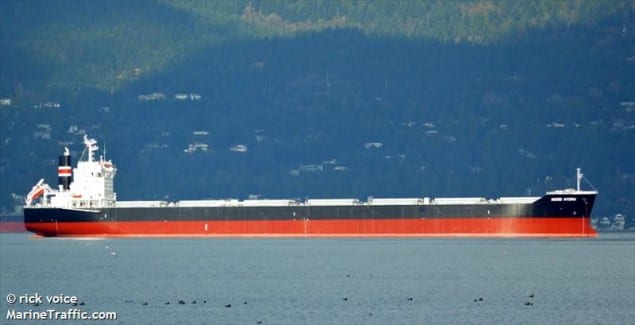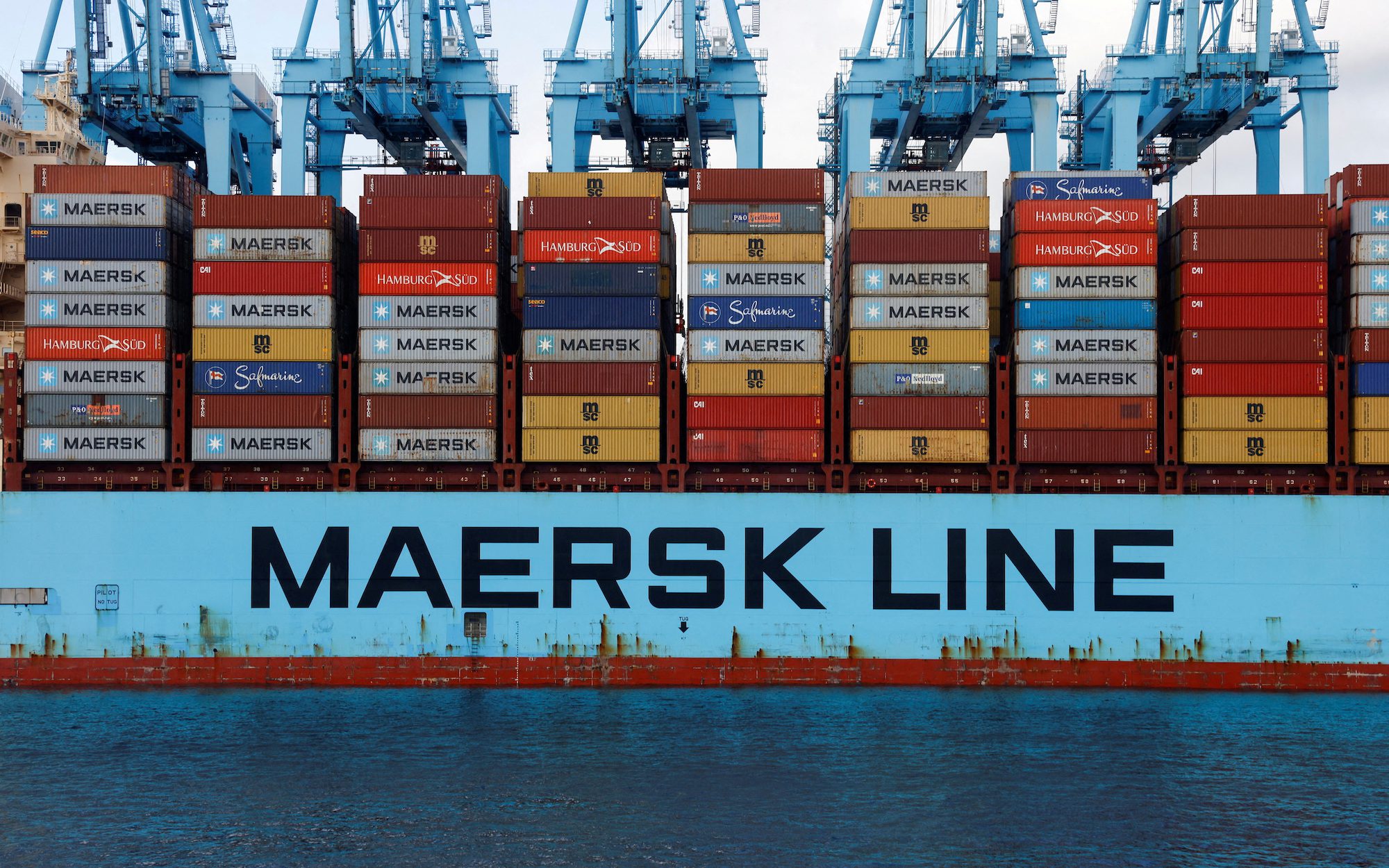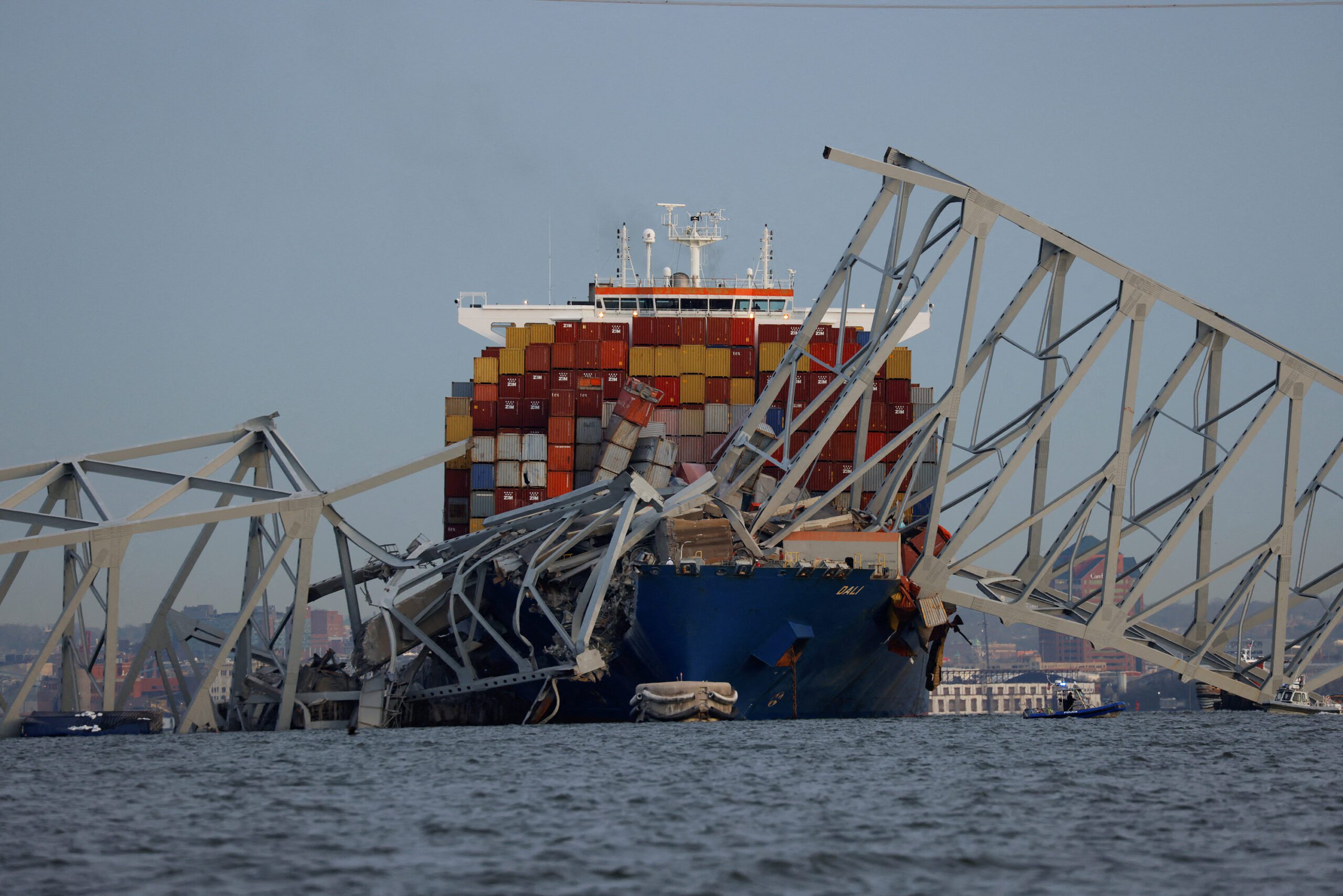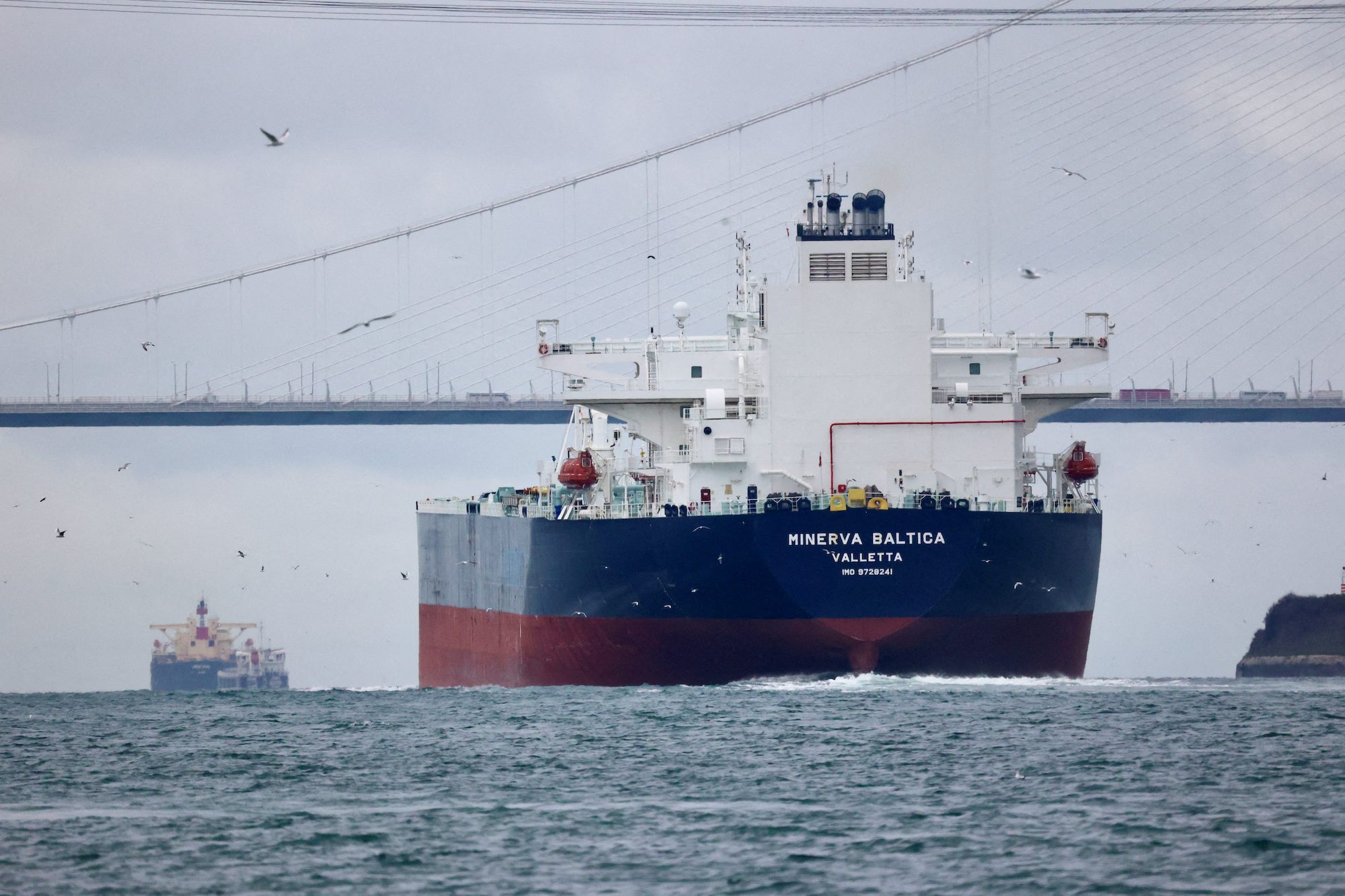The 77,134 DWT MV Nord Hydra is part of Norden AS’s dry cargo fleet. File photo (c) MarineTraffic.com/rick voice
By Pablo Gonzalez
(Bloomberg) — Pigs in China and bakers in Brazil will have to wait as Argentine exports from soybeans to wheat are delayed by the closing of the Parana River’s main channel.
The route to Rosario port — from where 80 percent of Argentina’s grains and oilseeds are shipped — is blocked after the Nord Hydra, laden with coal, ran aground on Tuesday, 290 kilometers (180 miles) from Buenos Aires. That forced authorities to close the channel, delaying 48 other vessels, according to Rosario Port Manager Guillermo Wade. The holdup could be costing a total of $960,000 a day.
The Nord Hydra is the second ship to be stranded on the main route to Rosario in a week. Bulk Guatemala ran aground May 13, causing a two-day stoppage. The timing couldn’t be worse as Argentina harvests a record 60 million tons of soy, a source of protein for livestock. The Argentine Water Institute blames a dry-spell in neighboring Brazil for reducing water levels by 2 feet below the May average to the lowest since 2009.
“Two straight years of drought in Brazil’s Parana basin are affecting our main river route at a time the crop is being shipped,” Juan Burus, an engineer at the institute, said by telephone from Ezeiza, Buenos Aires Province. “We won’t see a sudden recovery just with rains in northern Argentina; the situation will only change after significant rain in Brazil.”
Operations to unblock the channel were suspended Wednesday night until the arrival of another tug boat expected for 3 a.m. Thursday, Wade said in an e-mail. Shipping through a secondary channel was restricted to small vessels.
Union Strike
Exacerbating the bottleneck for exporters such as Cargill Inc. and Bunge Ltd. is a strike by workers from the cooking-oil industry in Rosario, Daniel Arce, vice president of the river drivers chamber, said by telephone from Buenos Aires.
“If to the low water level of the river you add exporters trying to ship a record crop in fewer days after union strikes, what you have is a big mess,” he said. “Let the pigs know there will be delays.”
©2015 Bloomberg News
Unlock Exclusive Insights Today!
Join the gCaptain Club for curated content, insider opinions, and vibrant community discussions.

 Join The Club
Join The Club













